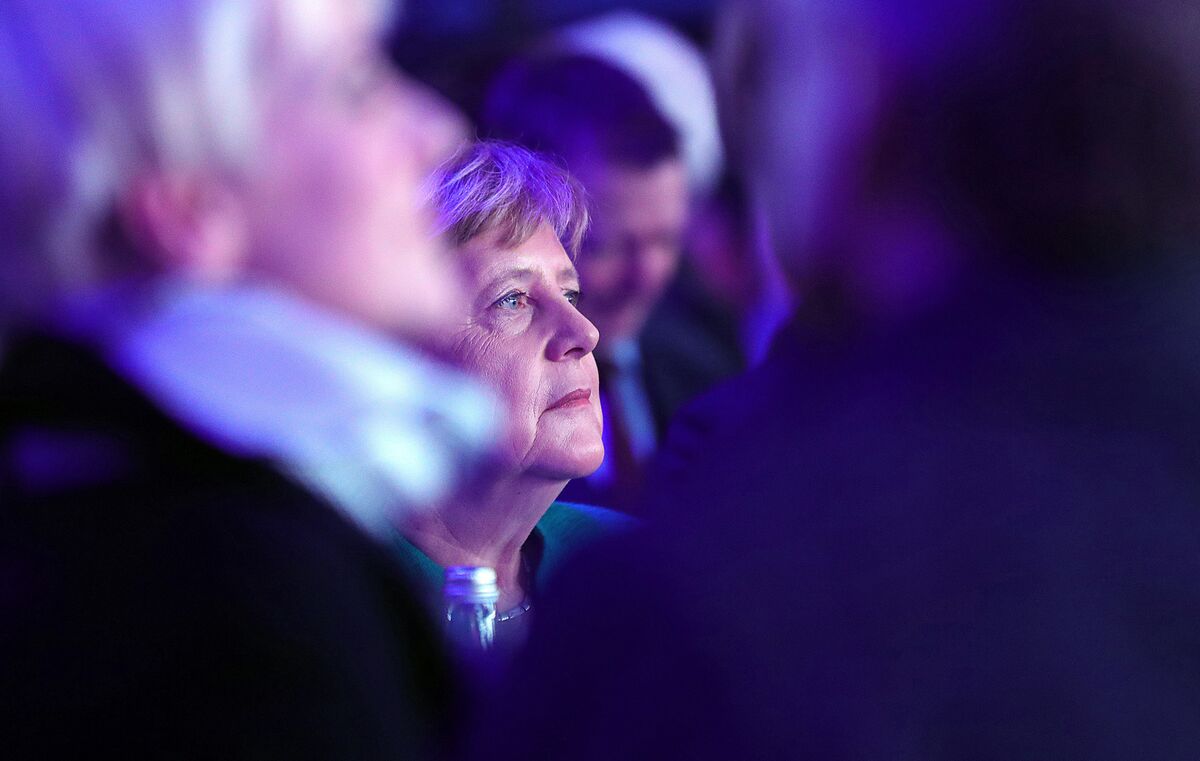
Angela Merkel’s own party bloc is making her life more difficult as hard-liners seek to force the German chancellor to shift to the right in talks on setting up a government.
After more than three months of post-election stalemate, Merkel is seeking a commitment this week from the rival Social Democrats to start formal negotiations on extending their governing alliance. Any coalition pact has to accommodate her conservative Bavarian sister party, the Christian Social Union, and its tough line on immigration and European policy.
Merkel’s 12 years in office are feeding a growing sense in parts of her bloc that the exploratory talks that began Sunday are the last chance for the current crop of leaders to stay in power. The acting chancellor, SPD head Martin Schulz and CSU chief Horst Seehofer -- soon to be replaced as Bavarian state premier by a younger leader -- are all vulnerable to a shifting public mood that is skeptical of another “grand coalition.”
“All three party leaders have a strong personal interest in the success of the coalition talks,” said Holger Schmieding, chief economist at Berenberg. A deal might involve the SPD allowing curbs on migration demanded by the CSU in return for expanded health and old-age benefits, he said.
Read more: Why Germany’s 1930s collapse suggest Merkel will get her coalition
Merkel also faces calls from conservatives in her Christian Democratic Union to resist fiscal easing.
“I’m not so happy about the underlying tone,” Michael Kretschmer, the CDU premier of the eastern state of Saxony, told reporters as talks resumed Monday in Berlin. “Politics isn’t about spending as much taxpayer money as possible, it’s about creating space for future generations.”
Schulz told Merkel and Seehofer privately last week that his political career will be over if the three parties can’t put together a government, Bild newspaper reported Saturday. Seehofer agreed and appeared to suggest that Merkel faces the same risk, Bild said.
The two sides are seeking to finish exploratory talks by Thursday. If there’s enough common ground, SPD leaders would ask a party convention on Jan. 21 to back full-fledged negotiations on a policy blueprint for a government.
‘Biggest Risk’
Many SPD members are wary of serving as Merkel’s junior partner for a third time after the party’s support plunged to the lowest level since World War II in an inconclusive national election in September. The SPD convention “is the biggest risk for Martin Schulz,” Schmieding said.
Personal familiarity and budgetary leeway created by Germany’s economic boom may smooth the way to a deal. Merkel has governed with the SPD for eight of her 12 years in office in a “grand coalition” of Germany’s two biggest parties.
Merkel, 63, is regrouping after her attempt to build a patchwork government with the pro-market Free Democratic Party and the Greens fell apart in November. She viewed the FDP’s walkout as an attempt to weaken her standing, rather than a result of policy disagreements, a person familiar with her thinking said at the time.
Read more: Why Merkel’s critics are pressing her to consider minority rule
Modern Germany’s longest political deadlock since World War II has put decisions on hold on everything from euro-area policy to government spending, migration and social programs. If the coalition bid fails, Merkel may end up leading a government without a parliamentary majority or face a repeat election in which she has said she’ll run again.
Bavaria’s CSU staked out its stance in a Die Welt newspaper op-ed by Alexander Dobrindt, the party’s parliamentary leader. He said the party is the vanguard of a “conservative revolution” that rejects excessive immigration, political correctness and overbearing government.
The positioning reflects the impact of the Alternative for Germany party, which entered the federal parliament with 12.6 percent of the vote in September after vilifying Merkel for refusing to shut Germany’s border to refugees. Merkel’s bloc won the election with 32.9 percent, its worst result since 1949.


0 comments:
Post a Comment